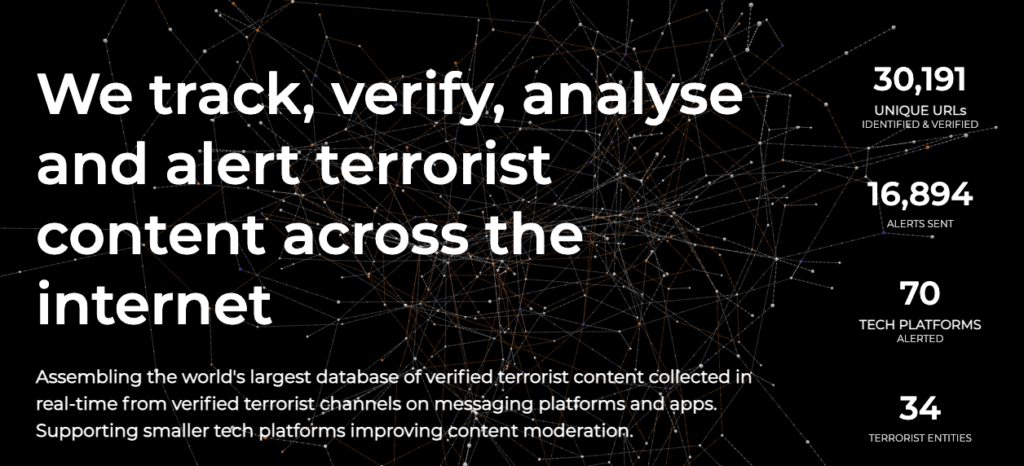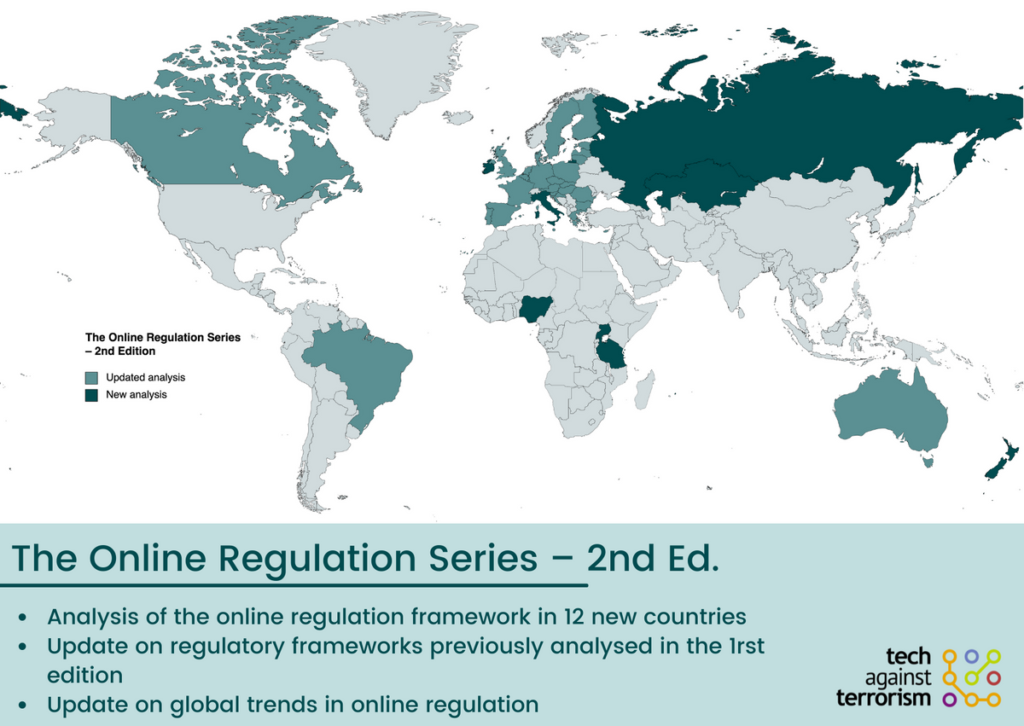Reader's Digest – 11 February 2022
Our weekly review of articles on terrorist and violent extremist use of the internet, counterterrorism, digital rights, and tech policy.
Job Alert!
- We’re looking for an OSINT analyst to join our team. In this role you’ll be supporting our mission of countering terrorist use of the internet while respecting human rights. Find out more and apply here.
Webinar Alert!
- For the first webinar of the 2022 Tech Against Terrorism & GIFCT e-learning series, we take a close look at "The Global Challenges in Moderating Far-Right Violent Extremist Online." This webinar is scheduled for 24 February 2022, 5pm GMT. You can register here! More information about the speakers and the agenda will be shared soon.
The next two webinars of our TAT-GIFCT E-Learning series will discuss:- The Gamification of Extremism: Extremist Use of Gaming Platforms (March)
- Audio Content & Detection: Moderation Challenges and Opportunities with Existing Audio Detection Models (April)

Tech Against Terrorism Updates
- The Tech Against Terrorism Podcast is back for a new series on 15 February! This series will explore the evolving use of the internet by terrorists and violent extremists, how this relates to real world harms, and what can be done by the tech sector to disrupt this threat. Throughout the series, we will speak to academics, counterterrorism practitioners, government and tech sector representatives, as well as human rights advocates for their insights on tackling this complex challenge. Read more about the upcoming series here, and listen to our Season 2 trailer here.
- Tech Against Terrorism’s Executive Director Adam Hadley has been quoted in The Guardian about how UK Prime Minister Boris Johnson’s false claim of Keir Starmer’s failure to prosecute Jimmy Savile amplified far-right conspiracy theorists on Telegram.
- Tech Against Terrorism provided a statement to The Observer concerning the prime minister’s willingness to perpetuate discredited far-right conspiracies.
Top Stories
- Nigeria’s Minister of Information and Culture plans to reintroduce the National Broadcasting Commission Act amendment bill which would empower the commission to regulate social media and internet broadcasting. A previous attempt to amend the bill occurred in June 2021 but was suspended following public outrage.
Tech Against Terrorism has recently updated its analysis of the online regulation landscape in Nigeria. You can access the blog post here.
- Proposed changes to the UK Online Safety Bill would expand its current scope to tackle extra “priority offences” including hate crime, drug-related offences, fraud and financial crime, and incitement and threats of violence. The UK media regulator, Ofcom, would have the possibility to sanction companies that fail to remove such content.
To read more about the UK's online regulatory landscape, you can find our analysis in our Online Regulation Series here and our response to the UK Online Safety Bill consultation here.
- Facebook and Instagram have expanded their terrorism counter-speech initiative in the UK and Pakistan after finding success with replacing search results with anti-terrorism and extremism resources.
- Indian authorities have arrested the editor of a prominent Kashmiri news outlet under strict “anti-terror” law and sedition, accusing him of “glorifying terrorism” and “spreading fake news”. A number of Kashmiri journalists have been arrested for doing their work since India’s government scrapped the region’s special status in 2019.
To read more about India’s online regulatory landscape, you can find our analysis in our Online Regulation Series (p. 78) here.
- The Heritage Foundation has called for sweeping reforms to hold Big Tech accountable. Their report recommends requiring transparency from tech companies on data use, content moderation decisions, advertising models, and apply and modernise antitrust law and allow American citizens recourse to seek for redress in case of censorship.
- The United Kingdom’s official threat level for international terrorism has been lowered from “severe” to “substantial”.
- The Sri Lankan government is using the discredited Prevention of Terrorism Act to commit prolonged, arbitrary detention and torture for individuals carrying out “unlawful activities” without providing arrest warrants before a court.
Tech Policy & Counterterrorism
- EARN IT Act Advances in Senate Despite Free Speech Concerns: The United States Senate Judiciary Committee voted to advance the EARN IT Act, a bill which would remove Section 230 liability protections over users’ posts if an online service fails to prove it has efforts in place to curtail online child abuse materials. The EARN IT Act discourages platforms from offering end-to-end encryption, as the bill would pressure technology and internet companies to conduct widespread scans of user messages and photos. Though the EARN IT Act states encryption will not serve as "an independent basis for liability of a provider" it can be used as evidence when courts consider whether a company has taken reasonable efforts to remove such content from its platform. (Brandom, The Verge, 10.02.2022).
Tech Against Terrorism has released a public statement on the EARN IT Act this week in response to it being brought before Congress. You can read it here.
For any questions, please get in touch via:
contact@techagainstterrorism.org


